The next generation of farmers finishes up the rush job (olives shouldn’t be left sitting for more than a night or two before going to the beit bahd).
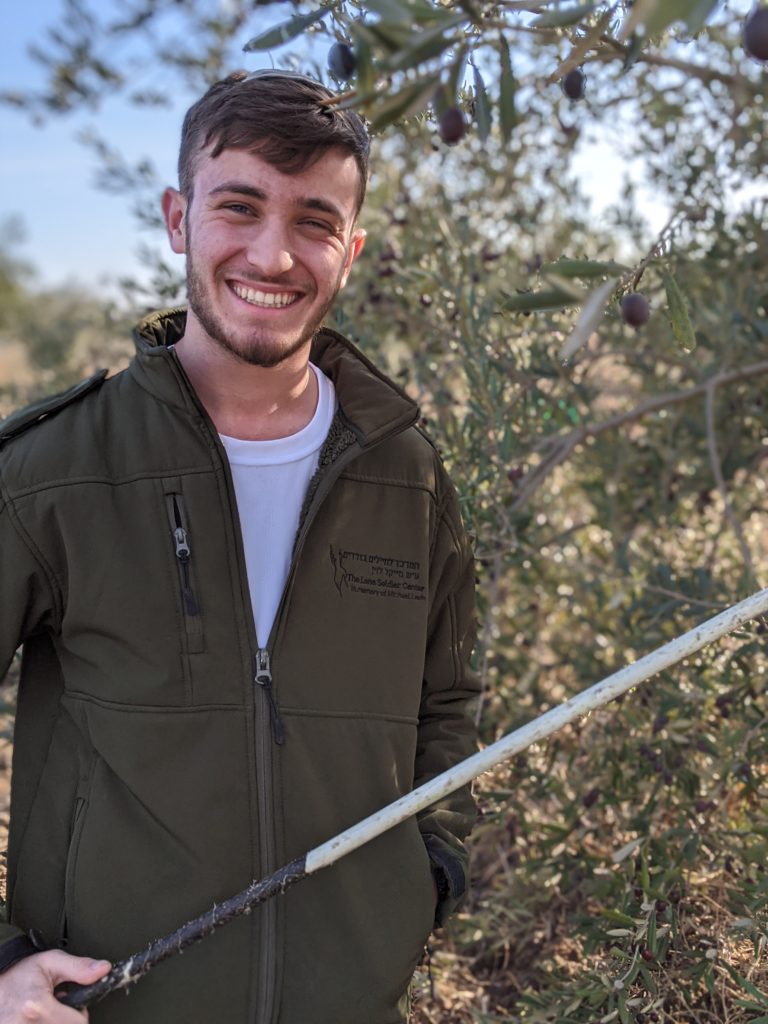
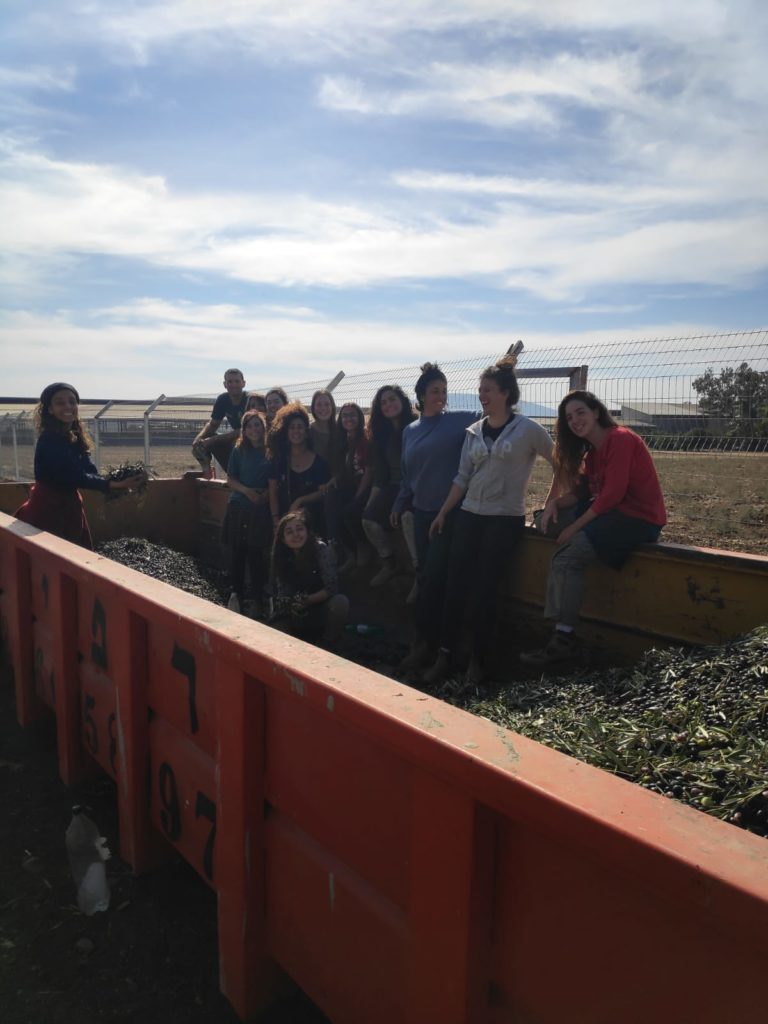
There were thousands of public and private oil presses throughout Eretz Yisrael in antiquity, since olive oil served everyone as the primary source for lighting fuel and cooking oil (plus medicines, hygiene — more on that in a bit –, and sacrifices in the Temple). To learn more about this critical aspect of daily life in Yisrael’s earlier eras, click here for an excellent photo essay.
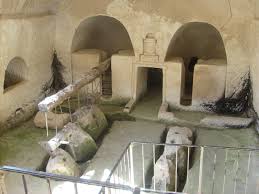
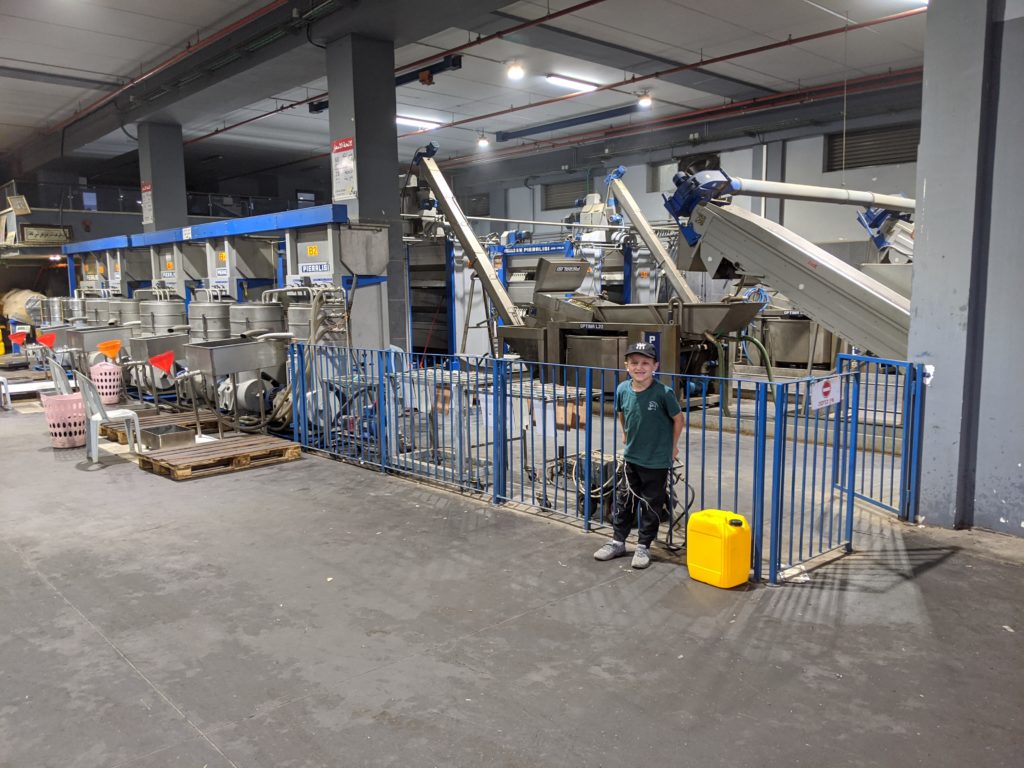
We brought our yield to the hopping beit bahd in Kfar Kana, around ten minutes away (I always hum “Od Yishama” as we drive through this town — vehameivin yavin). Mohammed, the super friendly manager who bonded with Chachi over their respective hearing aids, made sure that our gondola was on the “kosher line” — meaning that all of the yields on that line are from kramim that are orlah-free. And here’s how it’s done:
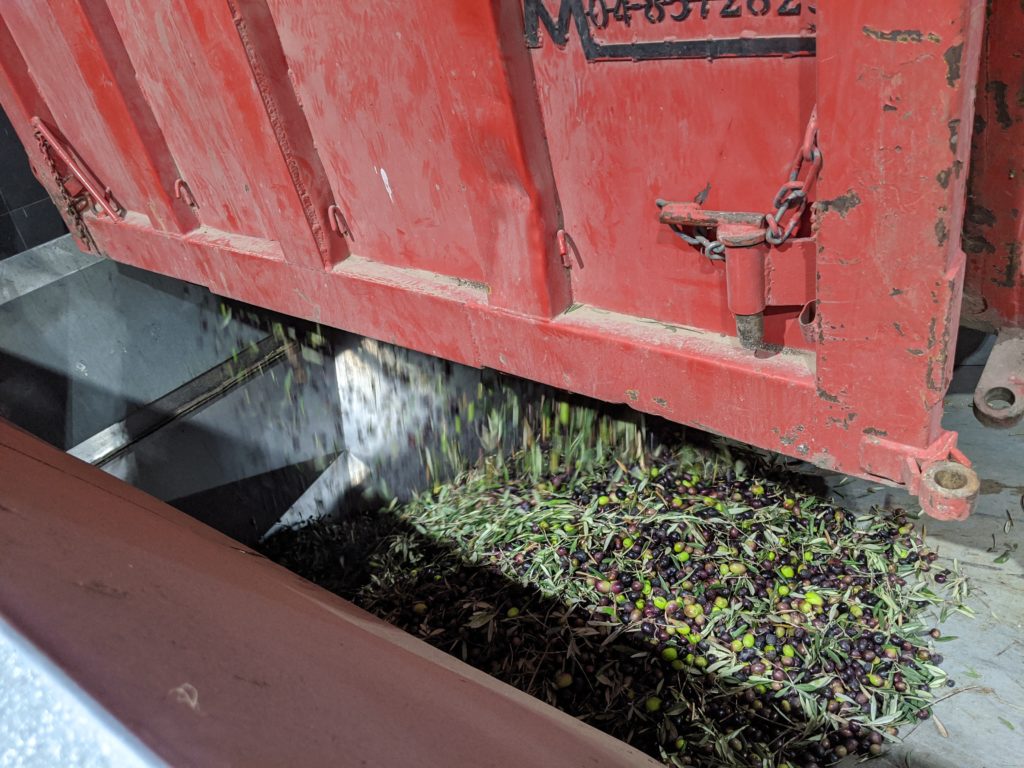
A huge fan blows the leaves off, and the olives then fall down into the washer.
Then they’re crushed, leaving a thick paste:
This is followed by a filtering process which separates the gefet (sludge solids) from the liquid. Mohammed told us that the Arabs use the gefet as smokeless fuel to warm their homes and heat their water. Years ago, we bought a huge tub of this stuff scented with lemon to use as an exfoliating soap — it’s messy, yes, but kind of like a mud treatment. Companies turn the gefet into fancy products like these. Nothing goes to waste!
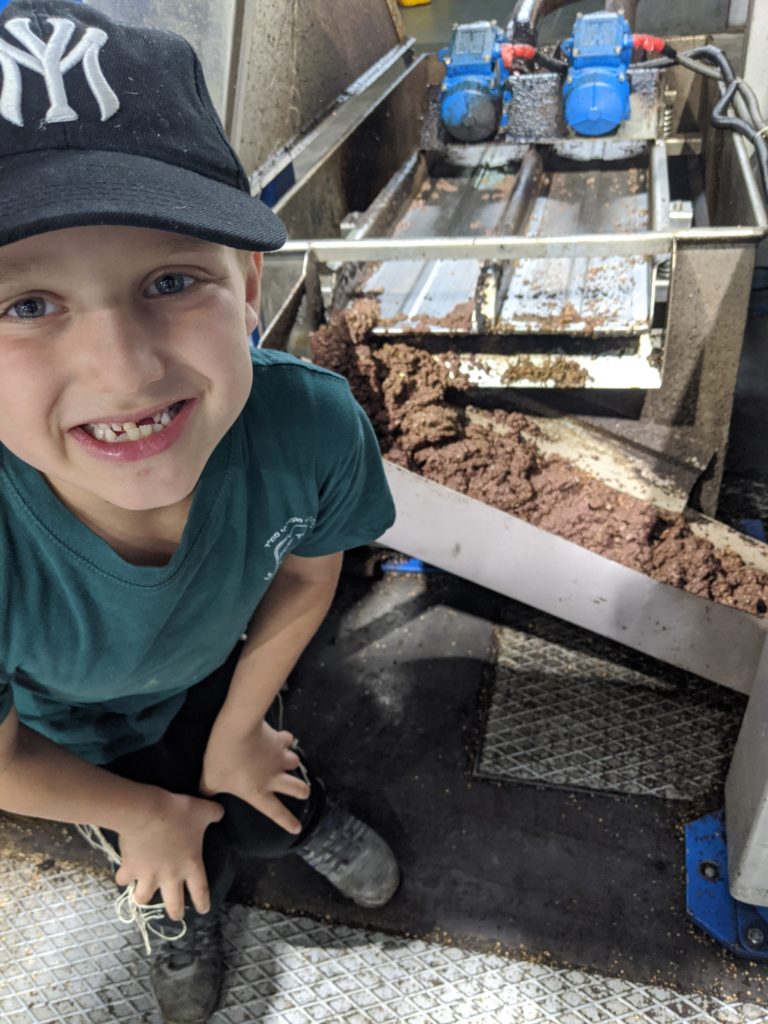
Finally, the liquids go through one last filtering process, spilling our funky neon-yellow “liquid gold” into vats. The crazy color mellows into a green-tinged gold after the oxygen bubbles settle down.
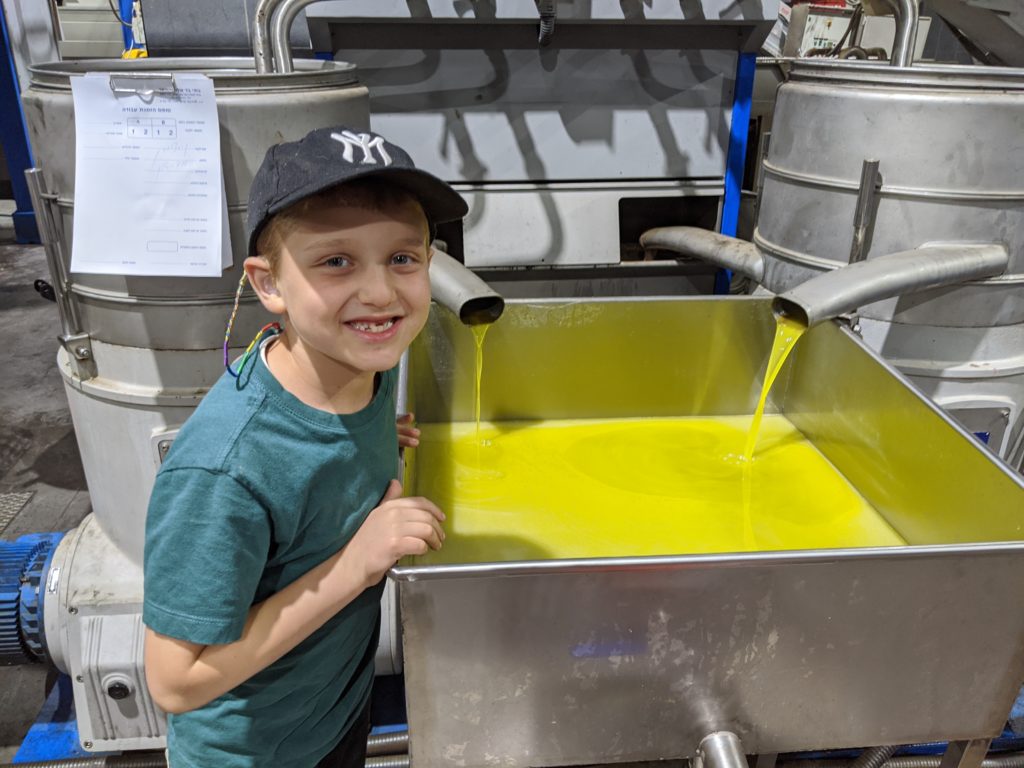
Ma’aser is separated — a tithing obligation for all olive harvests produced on Jewish-owned land in Eretz Yisrael What a zchut to be able to fulfill this mitzvah!
A bracha (blessing) links human industry and endeavor to the Source of all creation. The root of the word ברכה is ברך — that which connects (like a knee [ברך] connects the thigh to the shin, and a huge collection of interconnected droplets is called a בריכה [pool]). So before a Jew partakes of his bounty, he pauses to connect sustenance with acknowledgement that God has provided. L’Chaim!
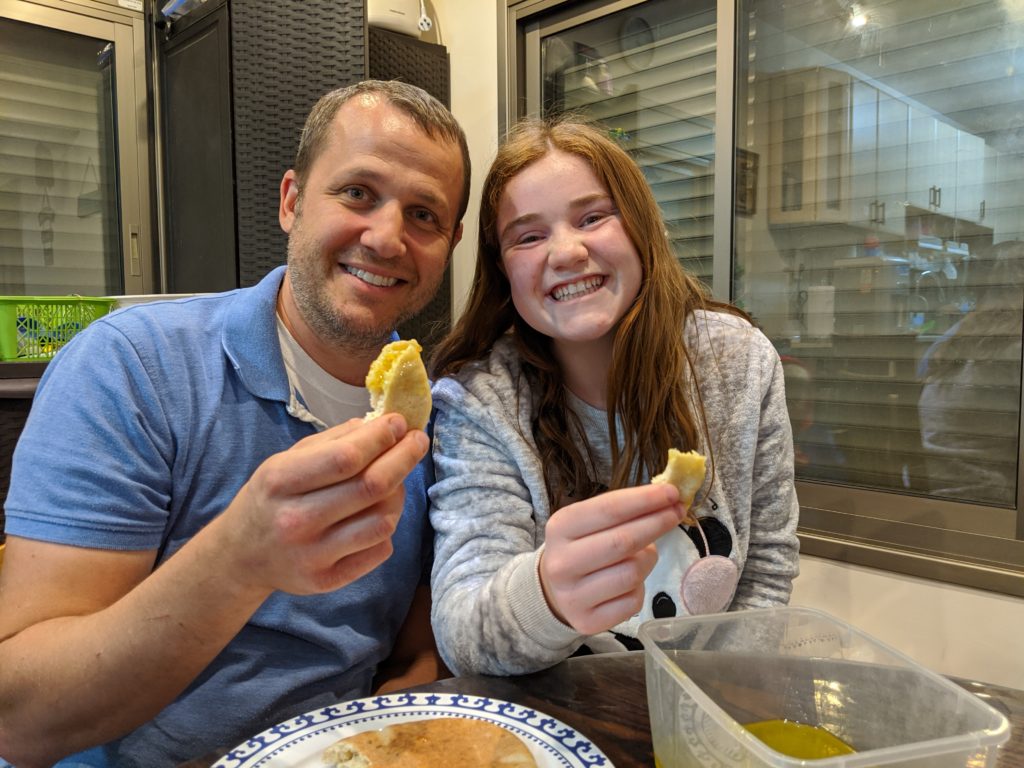
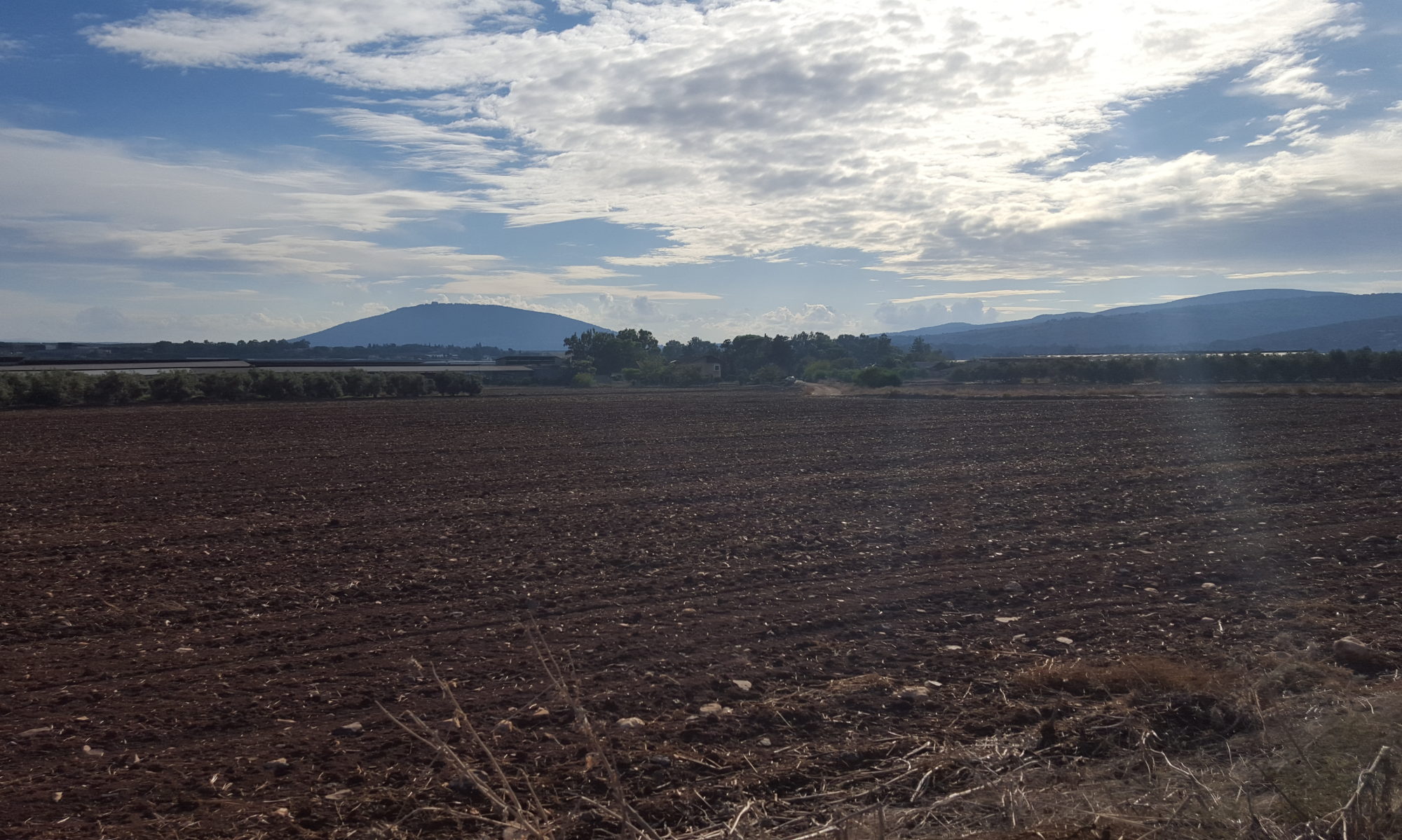
Fantastic, thanks for taking us on your journey.
BTW, not sure uzis are used any more, I think M16s are standard issue.
What’s the brand name you’re giving your oil?
Hey Devo! We don’t have a name yet!
Not even M16s. Tavor, which is pretty old, and other things. Guys in miluim, or basic, sometimes get M16s–they’re not out of use entirely. Yesterday in Chevron a soldier had a Mauser. At least, I think that’s what he said.
Tamar! Great post!
Mazal Tov! What a great mitzvah! Wishing you much success!